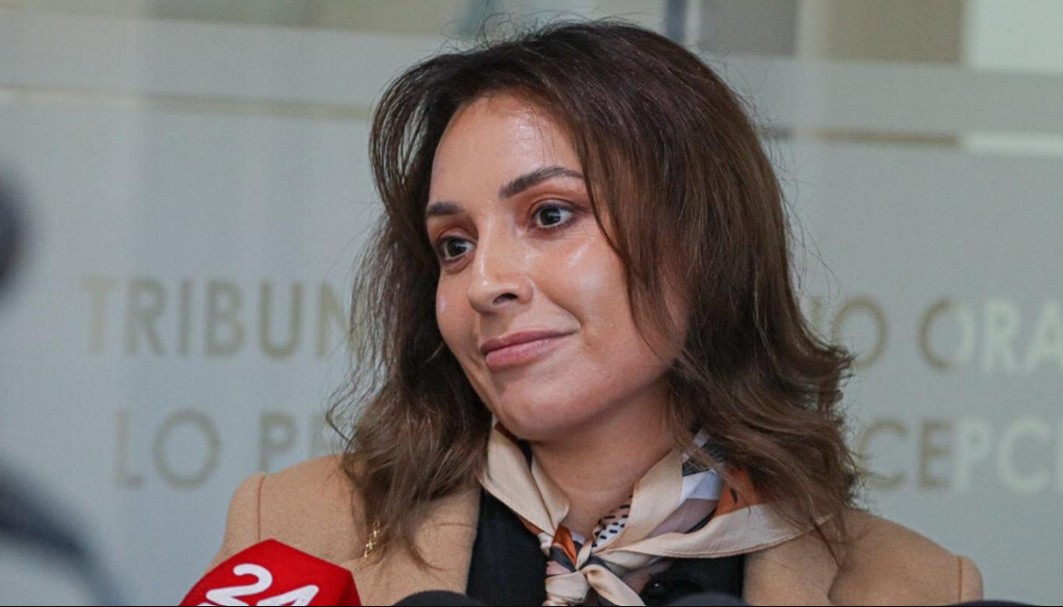Camila Polizzi is a well-known public figure and political personality from Chile who has gained recognition through her involvement in local politics and social causes. Recently, her name has become the center of widespread online discussions due to a viral search trend surrounding the term Camila Polizzi video.

This phrase has rapidly gained traction on platforms like X (formerly Twitter), Reddit, and TikTok, as users speculate about an alleged reportedly involving her. The sudden surge in interest has sparked curiosity, controversy, and debate about whether the material is real or part of another wave of misinformation.
However, it is important to emphasize that no official evidence or confirmation supports the authenticity of this alleged video. Much of the online conversation appears to be fueled by rumors and unverified claims. Viewers and social media users are therefore urged to respect personal privacy and avoid spreading unconfirmed or explicit content that could harm individuals’ reputations.
Contents
The Viral Camila Polizzi Video Controversy
The controversy surrounding the Camila Polizzi video began when clips allegedly showing the Chilean public figure started circulating across various online platforms. The content first appeared in private messaging groups and quickly spread to Telegram, Reddit, and X (formerly Twitter), where users began sharing snippets, screenshots, and unverified claims about its origin. Within hours, the topic became one of the most discussed searches in Latin America, fueled by hashtags and sensationalized headlines.
Public reaction was a mix of shock, curiosity, and skepticism. Some users expressed disbelief that such a video could involve a well-known political personality, while others rushed to draw conclusions without any factual confirmation. Discussions soon polarized online communities with some condemning the leak as an invasion of privacy, and others engaging in gossip-driven speculation.
Camila Polizzi Video The Scandal That Shocked the Internet
As of now, the source or original uploader of the alleged clip remains unidentified. No credible evidence has surfaced to prove the authenticity of the material, and Camila Polizzi herself has not confirmed any connection to the circulating video. Most of the content being shared is based on assumptions and digitally altered material, making it nearly impossible to verify what, if anything, is genuine.
It’s crucial to underline that sharing, distributing, or even storing explicit or non-consensual content is both unethical and illegal under most privacy and cybercrime laws. Beyond the legal implications, spreading such material can cause lasting emotional and reputational harm. The incident serves as a stark reminder of how quickly misinformation and exploitation can spiral out of control in the digital age.
Background on Camila Polizzi
Before the recent controversy, Camila Polizzi was widely recognized in Chile for her role as a political figure and social activist. She gained public attention through her involvement in local politics in Concepción, where she was known for her outspoken personality, progressive ideals, and active participation in community initiatives. Her dedication to civic issues and her efforts to engage with younger audiences through social media helped her build a significant following.

Polizzi’s image prior to the viral incident was largely that of a modern, ambitious woman striving to make a difference in Chilean society. She often appeared in interviews and local media, discussing topics such as social responsibility, transparency in governance, and the empowerment of women in politics. Despite facing the typical scrutiny that comes with public life, she maintained a reputation as a committed and vocal public servant.
However, this perception shifted dramatically when her name became linked to the alleged “Camila Polizzi video.” The sudden emergence of the keyword on search engines and social media platforms marked a turning point in how the public viewed her. What had once been discussions about her political activities quickly turned into speculation about her personal life. This transition from public service to online scandal demonstrates how easily digital narratives can redefine a person’s image in today’s hyperconnected world.
Media and Public Response
The alleged Camila Polizzi video quickly became a trending topic across multiple digital platforms, capturing the attention of both online communities and mainstream media outlets. On social networks like X, TikTok, and Reddit, discussions exploded as users shared their opinions, speculated about the content, and debated whether the video was real or fabricated. Some influencers and commentators used the controversy as an opportunity to attract engagement, posting reaction videos and commentaries that often blurred the line between analysis and sensationalism.
Meanwhile, several local Chilean media outlets covered the story cautiously, emphasizing that the origins of the video were unverified. Some attempted to fact-check circulating claims, while others focused on the political and social implications of the situation. Despite these efforts, the rapid spread of misinformation made it difficult to control the narrative.
As of now, Camila Polizzi has not issued an official statement regarding the alleged video. Her representatives have remained silent, likely to avoid fueling further speculation. This absence of a public response has left space for rumors to grow, giving rise to even more conjecture across online spaces.
Adding to the confusion, clickbait headlines and misleading thumbnails have amplified the controversy. Many sites and accounts used the story to drive traffic and gain followers, even if it meant spreading false or exaggerated claims. This cycle of attention-driven media has once again shown how digital virality often prioritizes views over truth, escalating situations far beyond their original scope.
Broader Impact on Online Culture
The Camila Polizzi video controversy highlights critical issues surrounding digital privacy, consent, and the viral nature of online scandals. In the era of instant communication, a single rumor or manipulated clip can spread globally within hours, leaving irreversible effects on a person’s life and reputation. What begins as a private matter can rapidly become public spectacle, often without the consent or even the knowledge of the individual involved.
Such incidents spark important conversations about responsibility in the digital ecosystem. Users, influencers, and media outlets all play a role in determining whether the internet becomes a place of empathy or exploitation. When people engage with unverified or explicit material, they contribute to a broader culture that normalizes privacy violations and cyberbullying.
The case also reveals how fragile public trust can be in the age of social media. Once a person’s name is linked to scandal, it can overshadow years of work and achievements, regardless of the truth. This dynamic underscores the need for critical thinking, digital literacy, and ethical awareness among online audiences.
Ultimately, incidents like this serve as a reminder that behind every viral story is a real person whose dignity and mental well-being can be deeply affected. The responsibility lies with everyone from content creators to everyday users to approach such topics with sensitivity, respect, and caution in a world where information travels faster than accountability.
The controversy surrounding the Camila Polizzi video serves as a powerful example of how quickly unverified information can dominate online conversations. What began as a rumor on social media rapidly evolved into a global topic of discussion, blurring the lines between truth and speculation. While the video has attracted widespread attention, no credible evidence has confirmed its authenticity, and much of the circulating material appears to stem from unverified or manipulated sources.
At its core, this incident highlights the urgent need to respect personal privacy and consent in the digital age. The viral spread of alleged private content especially when shared without verification can inflict serious harm on individuals’ reputations, careers, and mental well-being. Once such material circulates online, it becomes nearly impossible to contain, demonstrating the lasting consequences of irresponsible sharing.
As audiences and content consumers, we must remember that every click, share, and comment carries weight. Choosing to engage thoughtfully rather than impulsively can make a meaningful difference in combating online toxicity. The Camila Polizzi video controversy is not just about one person it is a reminder of the broader impact of viral misinformation, and a call for greater digital responsibility in how we interact, consume, and spread information in today’s connected world.

